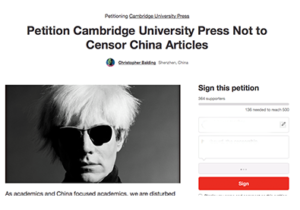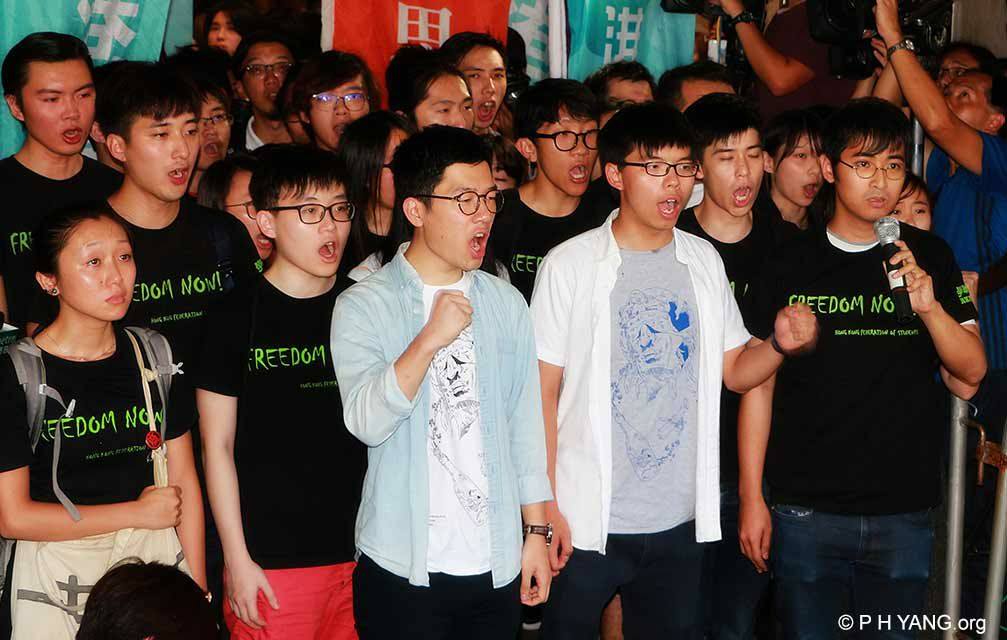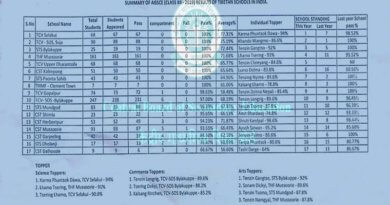Scholars urge Cambridge University Press to revert decision or face boycott
By Lobsang Tenchoe
DHARAMSALA, August 21: Scholars and China focused academics across the world have launched an online petition urging the Cambridge University Press (CUP) to revert its decision or face a potential boycott of its publications.
“We call upon Cambridge University Press to refuse the censorship request not just for the China Quarterly but on any other topics, journals or publication that have been requested by the Chinese government,” states the online petition.
 “If Cambridge University Press acquiesces to the demands of the Chinese government, we as academics and universities reserve the right to pursue other actions including boycotts of Cambridge University Press and related journals,” the petition added.
“If Cambridge University Press acquiesces to the demands of the Chinese government, we as academics and universities reserve the right to pursue other actions including boycotts of Cambridge University Press and related journals,” the petition added.
Censorship in China heeds no boundary and the world’s oldest publishing house, CUP is no exception. Forced with an ultimatum to cooperate or to face shut down, it chose the former and complied with China, thereby removing 315 articles and book reviews from its China Quarterly publication, a Mail Online report stated.
The articles taken off from the China Quarterly are said to include the 1989 Tiananmen Square crackdown, the Cultural Revolution and the status of Tibet which are politically sensitive subjects in China.
The academics in their petition made a case of free and open exchange of ideas and information on all topics.
“As academics, we believe in the free and open exchange of ideas and information on all topics not just those we agree with. It is disturbing to academics and universities world wide that China is attempting to export its censorship on topics that do not fit its preferred narrative,” the petition further stated.
 However, the state-run Global Times ran an editorial titled ‘China Quarterly debate a matter of principle’ and claimed that China has blocked some information on foreign websites (referring to China Quarterly) that it deemed ‘harmful’ to Chinese society, and proclaimed that Cambridge University Press had to abide by Chinese law to operate its server in China.
However, the state-run Global Times ran an editorial titled ‘China Quarterly debate a matter of principle’ and claimed that China has blocked some information on foreign websites (referring to China Quarterly) that it deemed ‘harmful’ to Chinese society, and proclaimed that Cambridge University Press had to abide by Chinese law to operate its server in China.
“China has blocked some information on foreign websites that it deems harmful to Chinese society. This is for the sake of China’s security and is within the scope of China’s sovereignty,” the editorial on Global Times stated.
“Western institutions have the freedom to choose. If they don’t like the Chinese way, they can stop engaging with us,” the editorial further declared.




